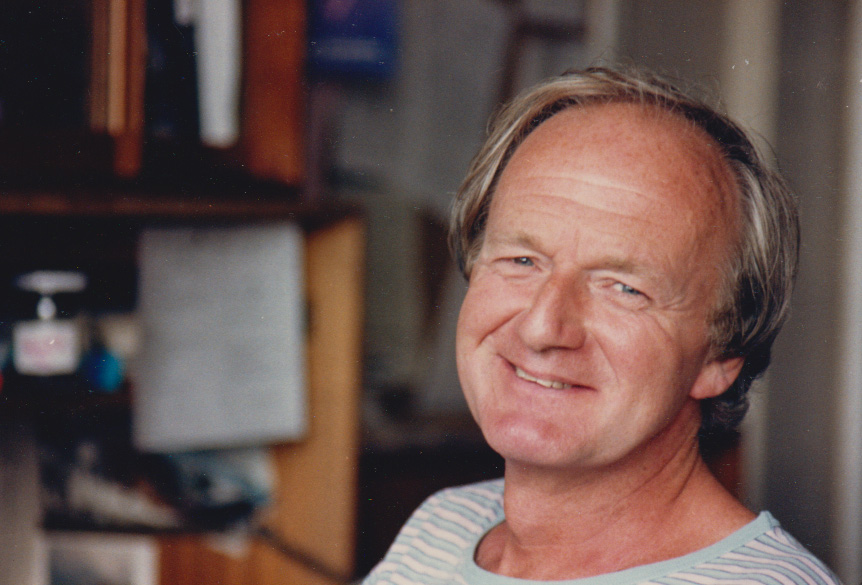Born in 1933 and raised in Plymouth, Ivor Treby was a gay literary activist, a poet and biochemist, a teacher, and a collector. As a young man he attended Exeter College at Oxford University as a student studying biochemistry, and later moved to London where he taught, and immersed himself in the gay community.

A member of the Gay Authors’ Workshop, Treby’s sexuality was a theme in many of his poems, of which he published more than 400 in his lifetime. He was also a meticulous record-keeper, and much of his correspondence is now archived in the care of the Bodleian Libraries, Oxford. The Bodleian comments: ‘the correspondence is notable for Treby’s witty, often saucy, cartoons and his sometimes wryly camp worldview (in the persona of ‘Blanche)’.
‘This person met him late one low tide
liked him an awful lot it seemed
took salt, offered him at table
a half egg matching his ownafter this
(excerpt from Treby’s ‘The Bezoar Stone’, 1984)
they saw a deal of each other’
Treby was an avid traveller, and would collect samples of sand or sediment wherever he travelled. On his death he bequeathed this collection of sand to RAMM. The collection totals 187 vials, originating from locations as far flung as Tahiti, the Canary Islands and New Zealand. In his will Treby stated the bequest was in memory of his maternal grandfather Charles Hayes, who was born in Exeter and served as a sailor in the first world war.
Later in his life Treby had dedicated himself to researching the Victorian lesbian poets Katherine Harris Bradley and Edith Emma Cooper, who wrote under the pseudonym Michael Field; the archive at the Bodleian includes audio files of Treby reading his own poems and those of Michael Field.
‘… It was quite moving, to actually see these sand samples that he collected over his whole life. And it occurred to me in seeing them that it felt very much, they were almost like his ashes. Not literally his ashes, but they are this kind of granular material that Treby left behind and bequeathed.’ – interview with Caleb Parkin, artist
More information about Ivor Treby can be found in the following locations:
Bodleian Libraries Archives and Manuscripts blog
Ivor Treby on RAMM’s Collections Explorer website
Ivor Treby archive – Bodleian website
‘Rejected gay sand’ – Interview with artist Caleb Parkin – Out and About
This content is viewable by members only. Login or sign up to get access.

